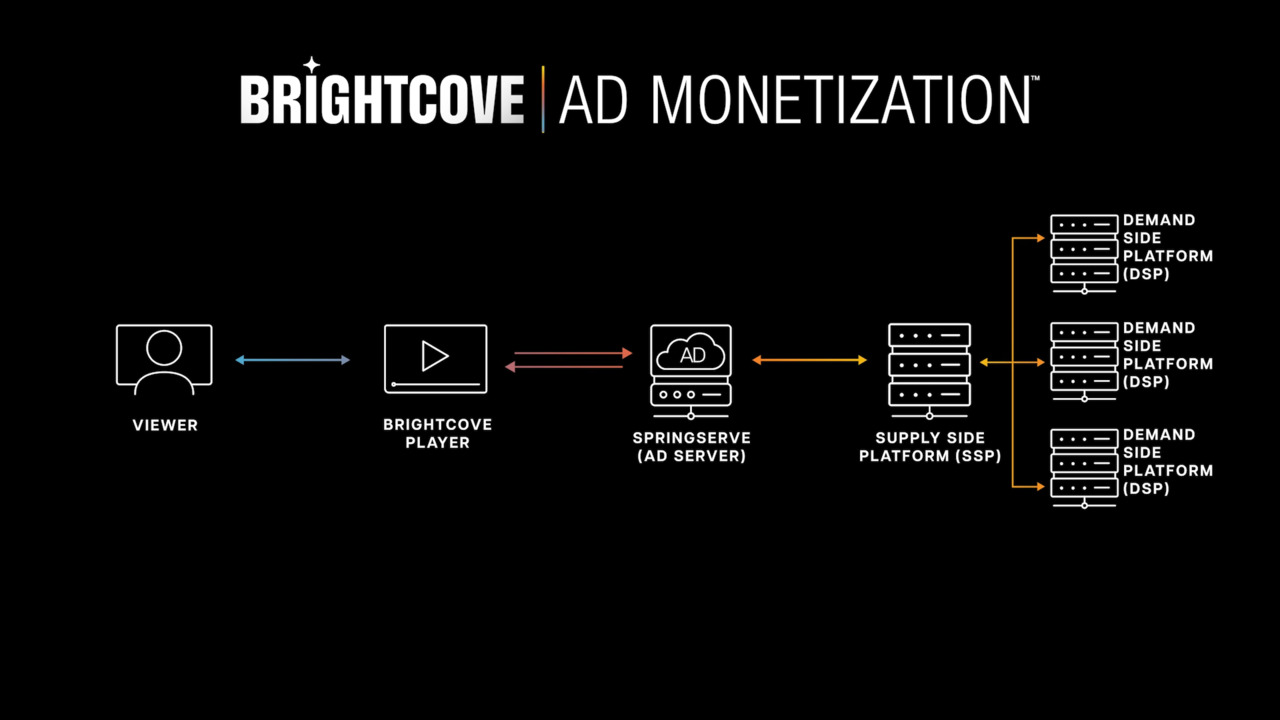Q4 2019 Global Video Index: CTVs gain, Smartphone Videos Up
Brightcove News

Brightcove’s just-released Q4 2019 Global Video Index found a big increase in the time spent viewing streaming video on a pair of devices — smartphones and connected TVs.
The increase on screens at opposite ends of the spectrum in terms of size seems out of character with the streaming world, but it may simply be an example of evolution. Where we once talked about the democracy of screens, that whatever screen at hand was the one we were most likely to choose to watch, viewers have evolved and now use mobile devices to source content and connected TVs to consume it.
Tablets and desktop computers are losing ground, meanwhile, with computers taking the biggest hit, a decline in video views of more than 10%.
Online news becomes a staple, especially in crises
If there’s any doubt streaming video has become mainstream across the world, how consumers are getting news related to the coronavirus outbreak should put an end to it.
Data from Brightcove shows streaming media/entertainment and streaming news numbers are riding a surging wave of viewing, almost certainly driven by the coronavirus crisis.
Whether it’s social distancing prompting consumers to camp out in front of screens to watch streamed entertainment, or a need for the latest news that has viewers checking in on developing stories more often, Y/Y streaming numbers have seen big gains.
In the first two weeks of March, for example, the amount of time spent viewing news video increased 14% from the previous year, while the actual number of videos viewed jumped more than 31%.
On March 13 alone, when U.S. President Donald Trump declared a national emergency, time viewing news online increased 47% from a year ago and the number of news videos views jumped nearly 66% – the highest total for a single day in Q1 for the past two years.
Broadcasters used to be the go-to source for developing news stories, but the COVID-19 crisis has shown that consumers increasingly turn to streaming news sources for the latest updates – as well as in-depth coverage of news that’s important to them. With streaming, news providers can update news on the fly, provide broader, deeper coverage, and pull in points of view from around the globe. And, they don’t need to worry about fitting reports into arbitrary time slots. They have the flexibility to tell a better story.
Q4 2019 Global Video Index sees rise in time watched
Time watched overall during Q4 increased by nearly a quarter, up 23% Y/Y, according to the Q4 2019 Global Video Index. Connected TVs saw time watched more than double globally, up 114% from a year ago, with smartphones rising 30% and tablets up 6%. Only computers saw a decline in time watched, about 2%.
Australia/New Zealand saw time watched on connected TVs increase 173% with North America seeing a significant increase in time watched on smartphones, more than 53%.
Marketing and Sales see rise in mobile use
In Q4, smartphones were the name of the game for marketers trying to reach consumers online. More than 62% of all marketing video views were on mobile devices globally.
Asia-Pac saw an even higher percentage of marketing video on smartphones, 82%, up from 55% the previous year. ANZ increased to 55%, Europe was at 62%, Latin America 61% and North America 53%.
Computers saw the second largest share of retail and marketing video views in every region with tablets trailing and connected TVs even further back. While smartphones earned a bigger share of video views in every market, computers lost share. Asia-Pac saw computer’s share of video views drop by more than 50%, Japan/Korea saw computers fall behind smartphones for the first time, as did North America. MENA saw smartphone share grow to 49%, pulling even with computers during the quarter. In every other region smartphones surpassed computers.
Tablets slipped in every region and connected TVs saw limited growth. But connected TV share is likely to add pace over time as viewers continue to look to the big screen for content, more premium content makes its way onto CTVs and marketers follow.
Engagement (time spent), meanwhile, with retail and marketing video on smartphones is up in every market: Asia-Pac (+380%); ANZ (+41%); Europe (+78%); Japan/Korea (+12%); LatAm (+52%); MENA (+91%); and, North America (+71%).
The bottom line
As the Global Video Index showed, Q4 traditionally has been a quarter of growth for OTT with the holidays driving viewing time on new devices and company’s racing to get content and platforms into the public eye.
But Q1 this year could see significant change as the coronavirus begins to have an impact on how critical information and news is shared around the world.
The true measure of just how far streaming video has come will be even more apparent in Q2, as large portions of the world’s population begins to “shelter in place” to slow the spread of the virus. Will the amount of streaming video consumed increase? Of course it will.


